Lower Thames Crossing opponents call for review of 'damaging' tunnel plan
- Published
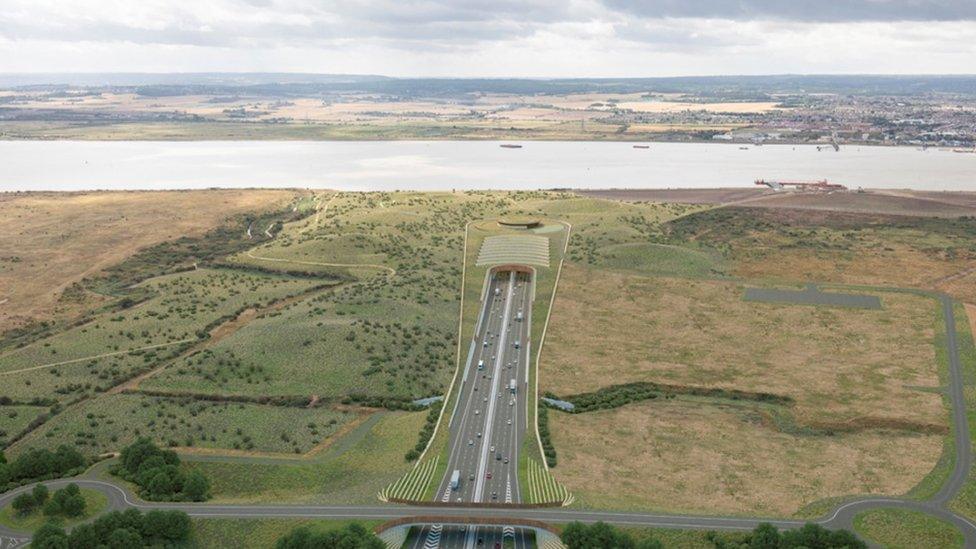
An artist's impression of the route on the north side of the Thames
Opponents of one of England's largest road projects have called for an immediate review of it amid fears about its environmental impact.
A coalition of conservation groups want Transport Secretary Mark Harper to rethink the Lower Thames Crossing plan.
They are concerned the proposed 14-mile (23km) tunnel linking Kent and Essex will destroy ancient woodland and other habitats while increasing pollution.
National Highways said the crossing would be the "greenest road" in the UK.
The coalition, which includes the Campaign for Rural England (CPRE) and the Woodland Trust, said a range of habitats and landscapes in Kent and Essex were under threat, and the project could become "England's most damaging road scheme for a generation".
In a letter to Mr Harper, they said: "We are troubled both by the impacts of the scheme, the huge cost and low economic benefits, and by a consultative approach taken thus far that has been far from transparent."
The route, which has been in discussion for more than 10 years, is estimated to open in 2029 or 2030.
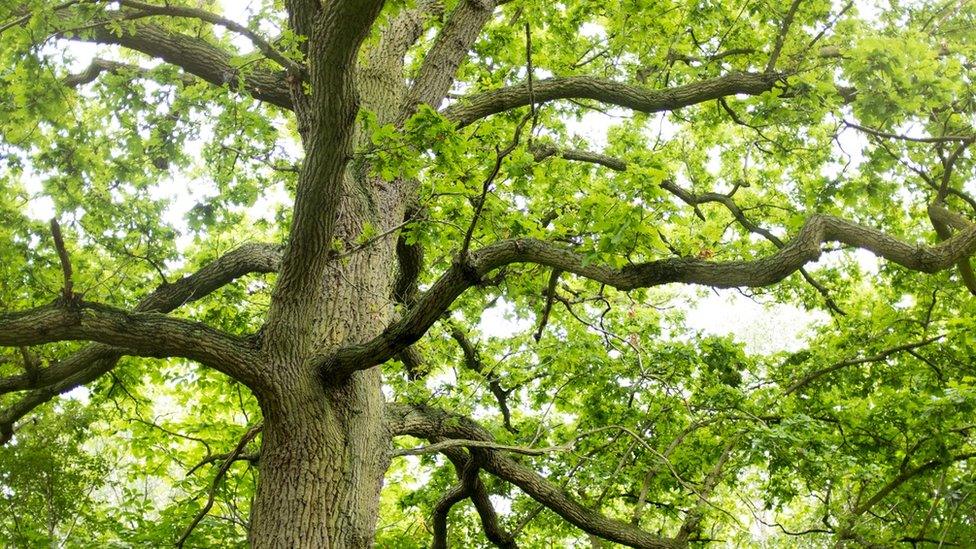
The groups fear irreplaceable ancient woodland will be lost
Emissions figures, obtained through a Freedom of Information request, found the new route was estimated to create five million tonnes of carbon dioxide (CO2) over a 60-year period.
However, project officials have proposed planting swathes of farmland to soak up the pollution.
Jack Taylor, lead campaigner at the Woodland Trust, said: "We're fighting both a nature and climate crisis, and destruction of ancient woodland and veteran trees for a road scheme beggars belief."
Hilary Newport, director of CPRE Kent, said they had been "frustrated" by a lack of information during the consultation process and it was "not reasonable to expect a project of this scale to go to examination without full detail of its impacts".
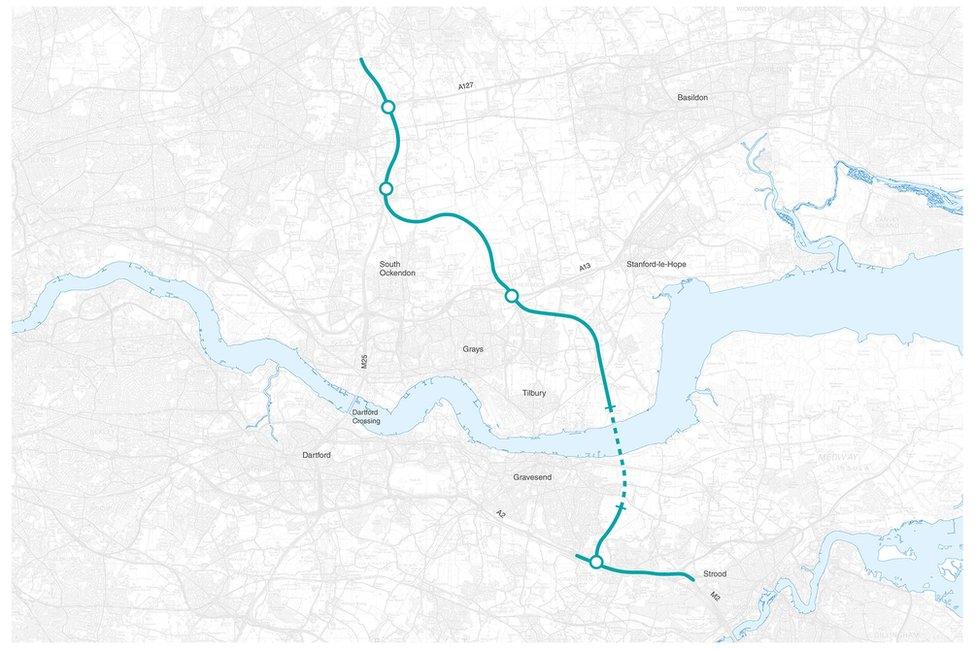
The route plans to connect the M2/A2, A13 and M25
Mark Bottomley, deputy director for the Lower Thames Crossing project, said there was an "urgent need" for the crossing, which would create a "reliable new route between people, jobs and businesses".
He said it would be the "greenest road ever built in the UK" and that, following consultation, the design had been improved to "reduce the impact on ancient woodland, avoid protected wetlands, and include new parks, woodland, and pathways for local communities".
Mr Bottomley said an application for a Development Consent Order (DCO) had now been submitted and the plans would be examined by independent, government-appointed experts.
"This is the most robust and demanding planning process and it will give stakeholders and local communities the chance to challenge and scrutinise all aspects of our proposals," he said.

Follow BBC South East on Facebook, external, on Twitter, external, and on Instagram, external. Send your story ideas to southeasttoday@bbc.co.uk, external.
Related topics
- Published23 May 2022

- Published12 May 2022
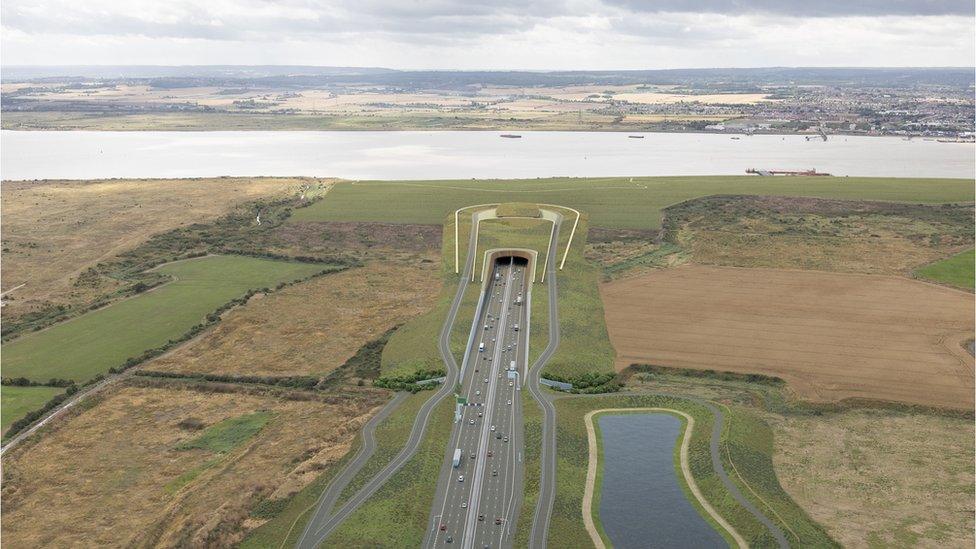
- Published26 July 2021
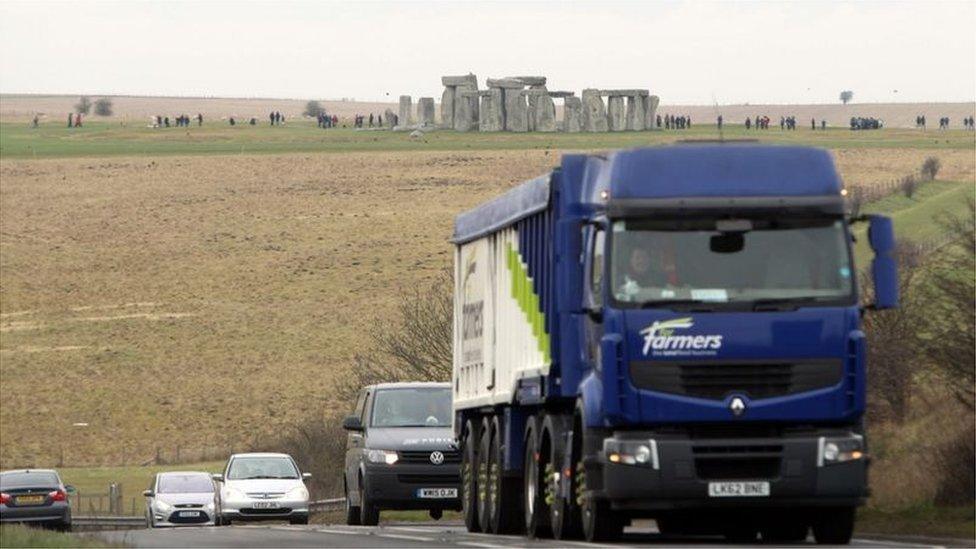
- Published6 December 2020
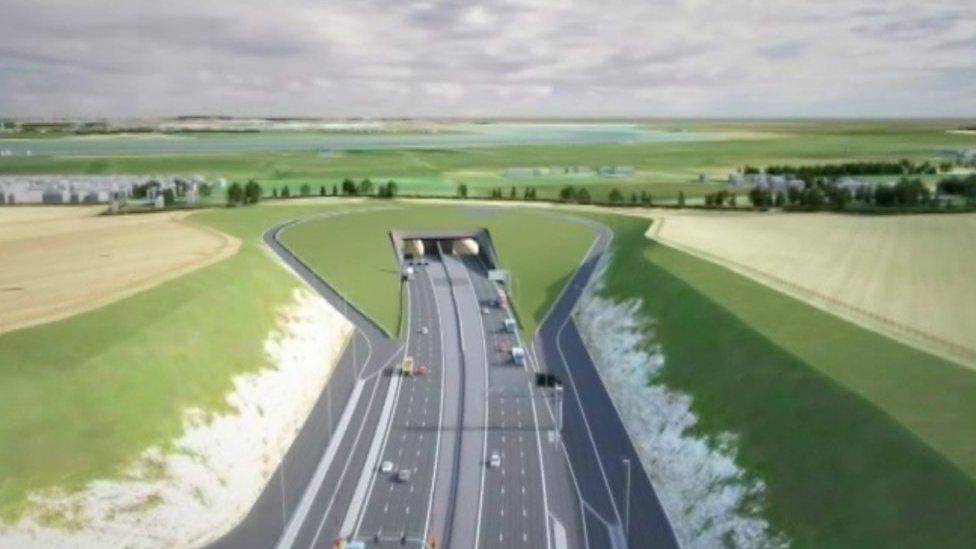
- Published10 October 2018
